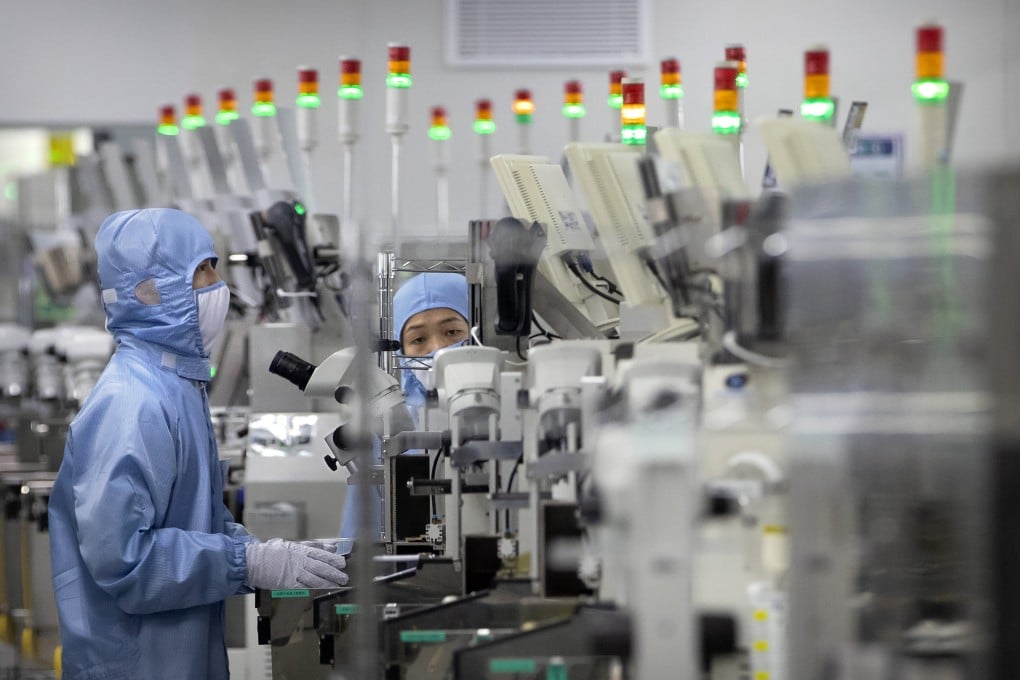US-China tech war: Taipei, Washington on same page when it comes to curbing Beijing’s semiconductor expansion
- Taiwan is increasingly aligning its policies with Washington to reshape existing value chains, a process that could limit mainland China’s access to know-how and talent
- Analysts say the revised laws plug a loophole but Taiwan government efforts might not be enough, and private firms will need their own strategy to prevent IP leakage

After selling his property in Taiwan last year, engineer Richard Chang bought shares in his current employer on the Chinese mainland. Such a bet might worry some, but Chang, who works for a semiconductor equipment company in China, is confident in his investment.
The value of his small stake in the employer could balloon in an initial public offering, which the company is expected to pursue within the next five years. On top of that, Chang’s salary as a senior manager, which has tripled in the last two years, is expected to keep rising as mainland semiconductor firms are crying out for people like him, with proven skills honed in the industry back in Taiwan.
Chang, who moved to mainland China “for better pay and to experience something big”, is one of tens of thousands of Taiwanese engineers working in the country’s semiconductor industry. The flow of such talent across the Taiwan Strait has been a key factor in developing the Greater China semiconductor supply chain over recent decades.
However, the window of opportunity for engineers like Chang may be closing amid geopolitical headwinds driven by deepening US-China rivalry and escalating tensions between Beijing and Taipei.
The government of the self-ruled island is increasingly aligning its policies with Washington to reshape existing value chains, a process that could limit China’s access to know-how and talent from Taiwan, which Beijing claims as its own.
Analysts said the moves reflect Taipei’s desire to protect core technologies and may cast shadow over exchanges in the semiconductor sector, even though its real impact will depend on how strictly the new laws are implemented.